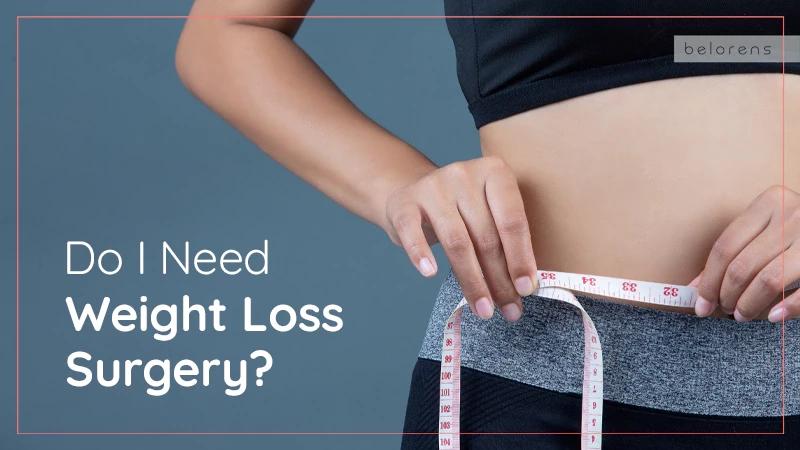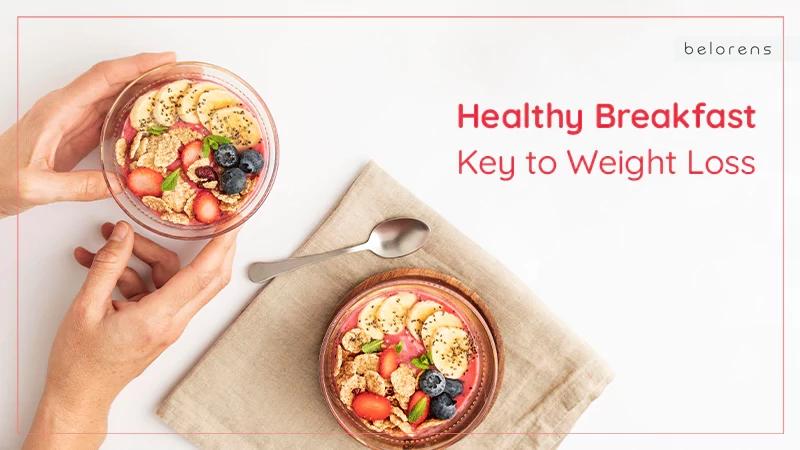Fasting Before Surgery: What Are The Reasons?
- ByMedical Content Team
- Medically Reviewed byDr. Sabine Kulhanek
Fact checked

You are probably here because you are going to have surgery and want to know if you need to take any precautionary measures. Or perhaps everybody you meet now keeps telling you not to eat or drink before the surgery. And you want to know what might happen if you eat or drink before the surgery.
Regardless of the surgery type, it always involves some anesthesia. Anesthesia can range from mild sedation to general anesthesia, and its purpose is to prevent any type of pain or discomfort during the surgery. Doctors usually recommend no eating or drinking before any medical procedure involving anesthesia to safeguard the health of their patients.
When an anesthetic is used, you lose your consciousness, protective reflexes, and involuntary functions. If there is any food or liquid in your stomach, it may get expelled up the esophagus to your throat. As a result, your risk of nausea or vomiting increases. But more importantly, this food, liquid, or stomach acid may get into your lungs and cause complications.
This article takes a deep dive into reasons you must not eat or drink before surgery, what kind of anesthesia requires no eating or drinking, and some tips on what to do if you feel hungry.
Why Should I Avoid Eating Before Surgery?
Your anesthesiologist will recommend you to stop eating or drinking 8 hours, or in some cases, 12 hours before the surgery. The purpose of fasting is to keep your stomach empty and prevent the aspiration of stomach content. Aspiration is when something you have eaten or drunk (the food or fluid from your stomach) goes into your lungs.
When awake, your body’s protective reflexes and involuntary functions are intact. If food, liquid, or any foreign object enters your airway, your nervous system reacts to its presence. It activates the cough or gag reflex and sometimes, even the vomiting center in your brain, and you get the foreign object out of your airways.

However, when your anesthesiologist gives you anesthesia, you become unconscious, and your protective reflexes and involuntary functions stop working. Your gut motility decreases, and peristaltic movements that push foods down the gut are reduced. As a result, it gets easier for stomach contents to return to the throat. Since the cough or gag reflexes are not working, this food enters the lungs.
In addition, a tube called the endotracheal tube is inserted down your throat to make breathing easy for you during the surgery. But unfortunately, the endotracheal tube also makes it easy for the food or fluid from your stomach to aspirate into the lungs. This aspiration, in turn, results in lung infections, tissue damage, and other complications.
Furthermore, regurgitation of food or liquid into the throat can lead to nausea and vomiting after the surgery. Nearly thirty percent of the people who undergo general anesthesia complain of nausea and vomiting. This can get severe quickly if your stomach is full of food and liquid. While drugs can manage such nausea and vomiting, preventing these side effects from happening in the first place is even better.
That is why no eating or fasting before the surgery and keeping your stomach empty are so important.
What Happens If I Eat Before Surgery?
If you eat before surgery, your risk of aspiration increases. The aspirate in your lungs can lead to the following severe complications:
- Respiratory failure due to airway obstruction
- Acute respiratory distress syndrome (fluid build-up in your lungs)
- Acid-associated inflammation in the lungs (pneumonitis)
- Aspiration pneumonia (infection of the lungs)
- Cardiopulmonary collapse and death

Aspiration pneumonia is a dangerous complication with a high mortality rate of around 21 percent. In addition, other complications like acute respiratory distress syndrome or pneumonitis are also extremely severe and cause significant mortality.
Besides anesthesia, common risk factors for aspiration include:
- Impaired gag reflex
- Heartburn/gastroesophageal reflux disease
- Impaired consciousness
- Stroke, seizures, and other brain conditions
However, aspiration risk is extremely low, thanks to preventive measures like fasting before surgery. According to research published in the Journal of Acute and Critical Care, aspiration affects 1 in every 3000 people under general anesthesia.
Aspiration of stomach content is thus a highly feared complication of anesthesia for both the patient and the doctor. That is why fasting for eight to twelve hours before the surgery is recommended so that the stomach is empty by the time anesthesia is given.
What Type Of Anesthesia Requires Fasting?
Anesthesia has many types and the anesthesia given depends on the type of surgery you are getting, i.e., whether it is a major surgery or a minor one. For example, plastic surgery may involve local anesthesia to a particular body part or general anesthesia that makes you unconscious.
Some types of anesthesia regularly used in hospital settings include:
- Local anesthesia: A medicine is applied to numb a small part of your body, such as when getting an injection.
- Regional anesthesia: It is given to block pain signals from one area of your body, such as the arm, leg, or lower half of the body, from reaching your brain. And the medicine is injected around the nerves covering that area of your body.
- Sedation: This is when a medicine is given to make you feel relaxed and sleepy during a procedure or surgery.
- General Anesthesia: General anesthesia makes you unconscious, so you cannot feel, see or hear anything, and is given during major surgeries

Besides local anesthesia, all other types of anesthesia often involve some form of fasting. The type of anesthesia you get depends on the surgery you are getting. And as a result, the recommendations for eating and drinking can differ significantly. However, whenever your medical procedure or surgery involves general anesthesia, such as cosmetic surgery, fasting for eight to twelve hours before the procedure is crucial.
Also read: Comparison of Different Types of Anesthesia
But the good news is that most surgical procedures are performed early in the morning. So most of your fasting period is during the night when you are asleep. As a result, you may only feel hunger or thirst in the morning before surgery, and though it can be difficult, you can control it.
What Can I Eat The Night Before Surgery?
While you can eat your regular foods leading up to the night before surgery, you should eat light foods such as salads, soups, coffee, creams, and milk the night before surgery. These foods are easy to digest and do not remain in the stomach for a long time.
In addition, do not eat foods rich in fats or proteins such as meat or fried foods as these take longer to digest. If you eat these foods, stomach emptying will be delayed, defeating the purpose of fasting.

To add more, you might be tempted to eat a big meal the night before surgery to prepare yourself for the fasting. But again, it can also lead to delayed stomach emptying. Consequently, your doctor may reschedule or postpone your surgery if your stomach is full.
However, if fasting seems difficult, you can start eating lean, protein-rich foods days or even weeks before the surgery. Foods like pork, tofu, seafood, and chicken can easily help your body pass through the fasting period.
Can I Eat After Surgery?
Surgery is not only a stressful event for the body but also interferes with digestion. In addition, the effects of general anesthesia may last as long as 24 hours after it was given. Thus, digesting solid foods during this period can be difficult.
Also read: Diet After Rhinoplasty: What to Eat And Drink and What to Avoid
However, it also depends on the surgery you have and if you experience any side effects afterward. While some surgeries require you to remain on a liquid diet for several days, you can start eating your regular foods immediately after others.
Cosmetic surgery, for example, requires you to take only clear liquids for at least 72 hours of the surgery. Ask your doctor for more details on what to eat and what not to eat after surgery.
What Does The Latest Research On This Topic Say?
While fasting 8 to 12 hours before surgery has remained the traditional approach, the latest research provides some newer insights. According to the research published in the Canadian Journal of Anesthesia, drinking up to 300ml of clear liquid before surgery does not affect the fluid volume or acidity of the stomach.
“What constitutes as clear liquids?” you may ask now. Drinks like fruit juice without pulp, black coffee, clear pop or tea, and water are considered clear liquids. Do not have milk, yogurt, or energy drinks before surgery, as these might not be beneficial.

However, it is always a good idea to consult your doctor. Ask them if you can drink clear liquids up to two hours before the surgery or if sticking to the traditional approach the safest idea. Furthermore, ask them about a personalized eating plan if
- You have diabetes mellitus
- You take any medications
- You suffer from other illnesses
Fasting before surgery not only prevents many complications during the surgery but also is beneficial even after the surgery. If you are getting surgery with general anesthesia, you must stop eating your regular foods and drinking alcohol or beer at least 8 hours before the surgery. And always consult your doctor for anything related to your health and well-being.
Common Questions About Fasting Before Surgery
Q: Why do I need to fast before surgery?
A: Fasting before surgery is necessary to reduce the risk of aspiration, which is when stomach contents enter the lungs. This helps prevent complications such as pneumonia and respiratory distress.
Q: How long do I need to fast before surgery?
A: The fasting period before surgery typically ranges from 8 to 12 hours. However, the exact duration may vary based on factors such as the type of surgery and the anesthesia being used. Your healthcare provider will provide specific instructions.
Q: Can I drink water before surgery?
A: In most cases, you will be allowed to drink clear liquids, including water, up to a certain time before surgery. However, it's essential to follow the instructions provided by your healthcare team, as they may have specific guidelines for your procedure.
Q: Can I chew gum or have mints during the fasting period?
A: It's generally recommended to avoid chewing gum or consuming mints during the fasting period before surgery, as these actions can stimulate digestion and may increase the risk of aspiration.
Q: Can I take my regular medications before surgery?
A: It's important to consult with your healthcare provider about taking medications before surgery. In some cases, you may need to temporarily adjust your medication schedule or avoid certain medications on the day of surgery.
Q: What if I accidentally ate or drank something before surgery?
A: It's crucial to inform your healthcare provider if you have eaten or drunk something during the fasting period. They will assess the situation and determine the best course of action to ensure your safety during the procedure.
Q: Can I brush my teeth before surgery?
A: Yes, you can typically brush your teeth before surgery, but avoid swallowing any water or toothpaste. It's best to follow your healthcare provider's specific instructions regarding oral hygiene before the procedure.
Q: What if I feel hungry or thirsty before surgery?
A: Feeling hungry or thirsty before surgery is normal. However, it's important to adhere to the fasting guidelines provided by your healthcare provider to minimize the risk of complications during the procedure.
It is crucial to consult your healthcare provider for personalized advice and instructions regarding fasting before surgery. Recommendations may vary depending on individual factors and the specific surgical procedure.
Last Word
In conclusion, fasting before surgery is essential to minimize the risk of complications during and after the procedure. Anesthesia can compromise protective reflexes, increasing the chance of aspirating stomach contents into the lungs. By abstaining from eating and drinking for the recommended period, usually 8 to 12 hours before surgery, you reduce the likelihood of regurgitation and aspiration.
Different types of anesthesia may have varying fasting requirements, so it's important to follow the guidelines provided by your healthcare team. Choosing light, easily digestible foods the night before surgery can help prepare your body. After surgery, your doctor will provide specific dietary recommendations for a smooth recovery.
Recent research suggests that limited intake of clear liquids before surgery may not significantly affect stomach conditions. However, consult your healthcare provider for personalized advice.
In summary, fasting before surgery is crucial for a safe procedure and optimal recovery. Trust your medical team's guidance and prioritize your health by following the fasting guidelines.



